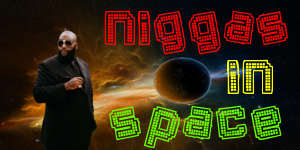So with the dramatic influx of threads on here about being tired (well, two total, lol)...

...it has become clear to me that there is a demand for advice on how to decrease fatigue and increase energy.
Well, it just so happens that I, too, was once a perpetually tired nigga myself. So I sought out all the information I could on how to ameliorate my situation, and tried and experimented with a tremendous array of possible solutions.
It's important to rule out any possible cause, first and foremost, whether it be a medical issue, psychiatric issue, hormonal imbalance, nutritional/dietary, lifestyle management, improper sleeping habits, or a side effect from any medications/supplements or recreational drugs.
1.
Medical and psychiatric issues:
Some of the main contenders are obesity and depression. It could also potentially be a thyroid condition, diabetes, anemia, or a whole variety of ever more obscure diseases and disorders. Assuming you aren't experiencing a whole bunch more other medical symptoms, we can skip straight to the first two mentioned.
Obesity can have an impact in a variety of ways. In addition to it being a
medically documented phenomenon, it is also something I have first hand experience with. I weighed, at one point, 300 lbs. One of the
many benefits I noticed from losing one third of that, bringing myself down to the healthy BMI range, was an increase in energy.
Depression can also cause fatigue and listlessness. "Curing" clinical depression is a whole other topic entirely, but two of the most promising available solutions are the right
prescription medication and
cognitive behavioral therapy.
2.
Hormones, nutrition, lifestyle, and sleep patterns:
Sometimes the problem can be still be biological, but a lot more subtle than any major disease or disorder.
Some of the potentially contributing hormonal factors to sleep and energy balance include
cortisol (i.e. The "stress hormone") and
melatonin (i.e. The "sleep hormone"). Now, whether one can naturally manipulate cortisol is a bit of a lengthy topic, and I've never heard of any kind of cortisol antagonist supplement one can take, but, reducing stress using behavioral and strategic practices, learning to more effectively manage life's tasks, and so on, can all help moderate cortisol levels. Melatonin, however, can easily be supplemented with an over-the-counter product that is to be taken before bedtime to ease the transition into sleep.
Regarding nutrition, I don't have much in-depth knowledge on how each and every vitamin and mineral affects sleep or energy, but it can't hurt to take a multivitamin daily, and to just try to ensure you more-or-less meet the recommendations of the food pyramid, and stay well hydrated, and so on. Also, something just kinda common sense here, but worth pointing out, is that overeating at any particular meal generally results in a sluggish feeling and sometimes drowsiness.
Next, lifestyle factors, such as exercise and general physical movement and activity, are a
major contributing factor, at least in my experience, and I believe much of the research supports this. Even though it can be difficult to muster the motivation to get up and get moving sometimes, if you just kinda bootstrap yourself and act before you get the chance to talk yourself out of it, I almost guarantee you will start feeling a surge of energy immediately.
Finally, sleep patterns play a very big role in how your energy levels are during the day. If you are getting insufficient sleep, or even
too much sleep, your day game will be off. I also
strongly recommend avoiding varying your circadian rhythm. Try to go to sleep at a consistent time, and wake up at a consistent time, every single day. Trust me, it will make a huge difference.
3.
Supplements, medications, and recreational drugs:
Okay, now onto the double-edged swords.
This topic can be approached in terms of
which chemicals are currently negatively impacting your energy levels, and
which chemicals can potentially positively influence your energy levels.
I could write entire pages delineating my observations on this topic alone, but I need a break.
If there is sufficient interest, I will write a part II.
But, the important thing is to work out the fundamentals listed above, and
try to avoid looking for the quick fix (i.e. Especially potent stimulants such as amphetamines – including methamphetamines). It's one thing to get high from time to time, but if you start using something that strong just to get enough energy to do basic daily tasks, it's a slippery slope.
That being said, I drink coffee; some days a lot, other days only one or two cups, and some times none at all.
I also sometimes take some ephedrine (OTC in Canada, not sure about the rest of the world) when I
really need an extra kick.


